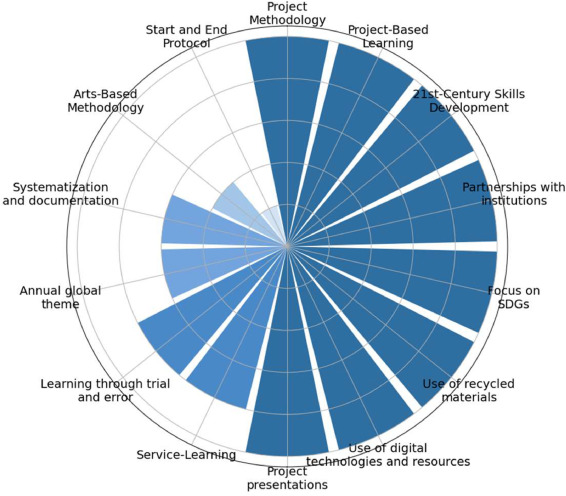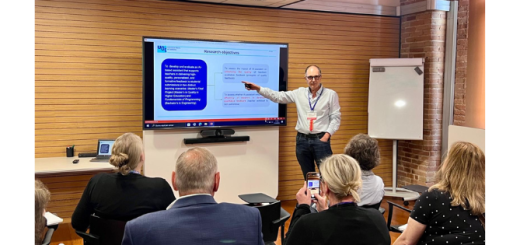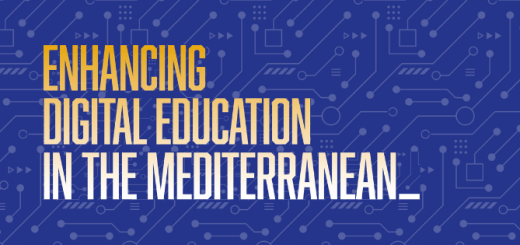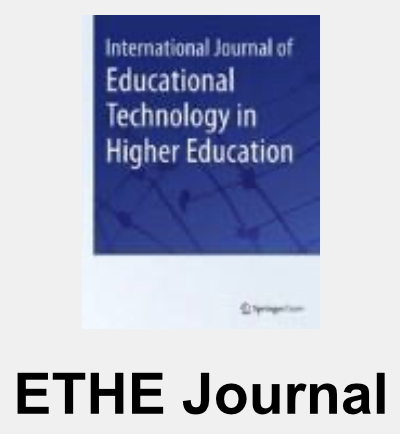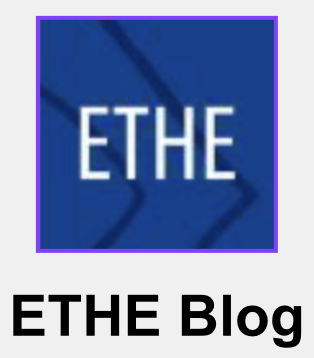Arts Integration with Digital Tools in Primary Schools: Innovative Pedagogical Practices in Catalonia by Nella Escala, Teresa Romeu and Montse Guitert
A new article has been published with the contribution of the Edul@b Research Group researchers Nella Escala, Dr. Teresa Romeu and Dr. Montse Guitert on how art can be integrated in primary schools through digital tools. Under the title “Arts integration with digital tools in primary schools: Innovative pedagogical practices in Catalonia“, Edul@b researchers explore how integrating arts into the curriculum through the support of digital technologies can foster meaningful learning in primary education. There’s a clear need to investigate innovative teaching methods that combine creativity with technology. Therefore, this study examines how such practices are implemented in real school settings.
The article features five schools in Catalonia that were specifically picked for their capacity to integrate arts using digital technologies. These practices have a strong potential, and a well-established link between arts implementation and curriculum setup needs to be implemented. In order to promote an up-to-date learning environment, a good strategy is to merge and integrate creativity with the latest digital technologies available.
Below, you will find a description of “Arts integration with digital tools in primary schools: Innovative pedagogical practices in Catalonia” and a link to the full article, which is part of the new volume of International Journal of Educational Research Open (Elsevier).
Description
This study explores how integrating the arts into curricular subjects, supported by digital technologies, can foster meaningful learning in primary education. Driven by the need to understand innovative teaching approaches that combine creativity and technology, the research investigates how these practices are implemented in authentic classroom environments. A qualitative methodology was employed, which included participant observations and semi-structured interviews with teachers, school leaders, and representatives from cultural organisations. Five schools in Catalonia were selected as exemplary cases of arts integration using digital tools in responsible and creative ways. The findings reveal that these schools share key features: they implement project-based and interdisciplinary methodologies, foster digital and 21st-century skills such as creativity, collaboration, communication, and critical thinking, and collaborate actively with cultural institutions to align their initiatives with the Sustainable Development Goals. Learning strategies include the use of digital media and recycled materials in various formats. Some schools promote service-learning projects, global themes, and trial-and-error learning to foster community involvement and resilience. Documentation practices, including digital field notebooks, support reflection and continuity of learning. Although these practices have considerable potential, the study concludes that there is a stronger need for a connection between artistic strategies and curriculum goals. Furthermore, systematic documentation guarantees the sustainability of arts-based digital approaches in different educational contexts.
How To Cite This Article
Escala, N., Romeu, T., & Guitert, M. (2025). Arts integration with digital tools in primary schools: Innovative pedagogical practices in Catalonia. International Journal of Educational Research Open, 9, 100538. https://doi.org/10.1016/j.ijedro.2025.100538

